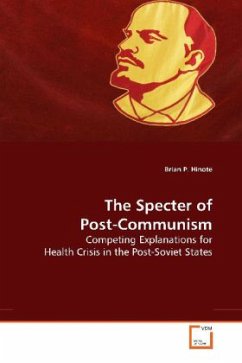As Karl Marx and Friedrich Engels proclaimed 160 years ago - A specter is haunting Europe the specter of Communism. But if the historical forefathers of the Soviet experiment could look in on the twenty-first century today, they would see another, more insidious specter in the ashes of post- socialism a specter of health crisis and unchecked mortality. This study explores some of the factors contributing to health crisis in eight former Soviet republics, and sheds light on some precise pathways through which those factors operate to produce unfavorable health outcomes. Longevity among many citizens in this part of the world has declined dramatically or stagnated since the mid-1960s. When the Soviet Union collapsed in 1991, the health situation further deteriorated, and the health crisis continues to affect large segments of many post-socialist states. This analysis more clearly identifies the roles that stress-related symptomology and political ideology play in the implementation of health behavior and lifestyles, and suggests that lifestyles must be conceptualized as something other than simply individual choices for many citizens of the former USSR.
Bitte wählen Sie Ihr Anliegen aus.
Rechnungen
Retourenschein anfordern
Bestellstatus
Storno

